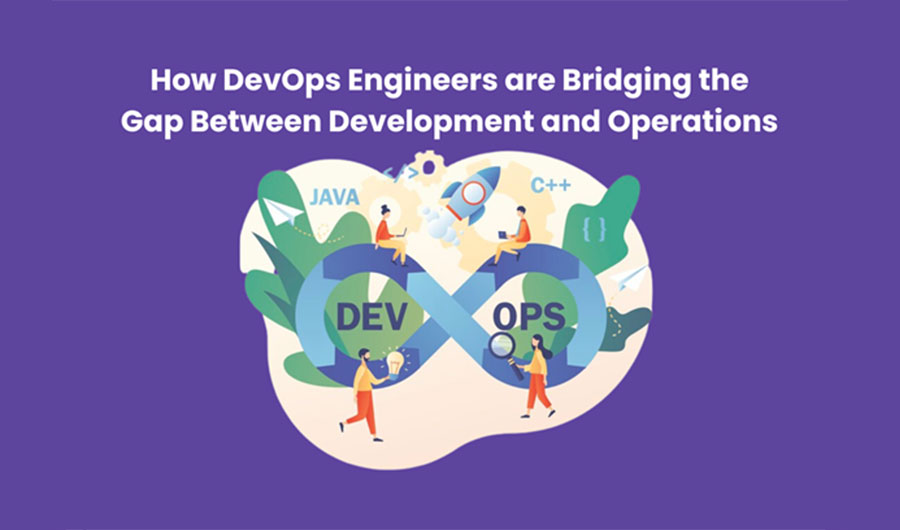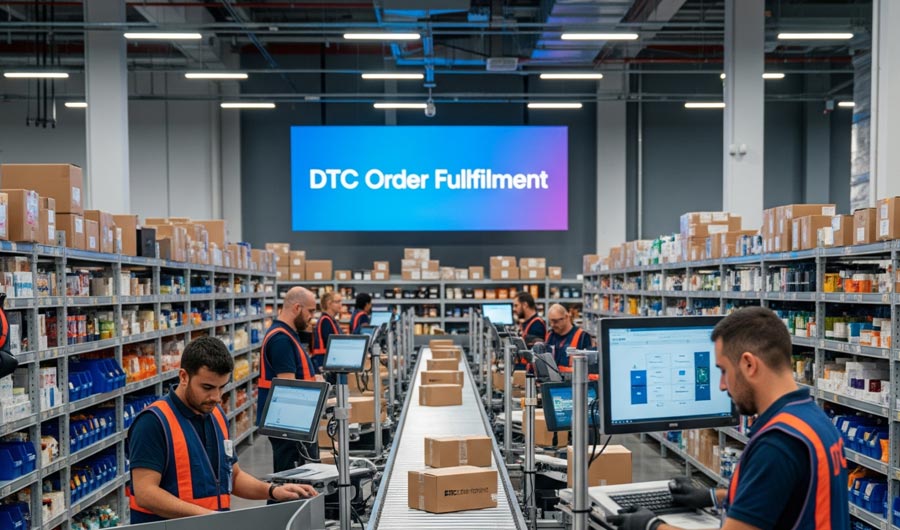
How DevOps Engineers are Bridging the Gap Between Development and Operations
The importance of DevOps engineers in software development has grown. “DevOps,” which stands for “Development and Operations,” refers to a professional and cultural trend emphasising cooperation and communication between IT specialists and software developers. The unsung hero of this change, the DevOps Engineer, is essential in bridging the gap between the development and operations teams.
In this blog, we delve into the complex world of DevOps and explain how DevOps engineers help bring together the two traditionally disparate fields of development and operations.
Table of Contents
- The Essence of DevOps
- The Role of a DevOps Engineer
- Breaking Down Silos
- Automation: The DevOps Engine
- Continuous Integration and Continuous Delivery (CI/CD)
- Security in DevOps
- The Evolution of DevOps Practices
- Conclusion
The Essence of DevOps
Fundamentally, DevOps is a mindset that aims to bring together the historically disparate domains of software development and IT operations rather than just a collection of procedures or instruments. This synergy is established by encouraging cooperation and shared accountability across these two crucial spheres.
Software development life cycle paradigms have changed with DevOps, emphasizing continuous integration, delivery, and deployment. This revolutionary method was created by DevOps engineers, who make sure that the software development process is an iterative, collaborative journey rather than a simple linear progression.
The Role of a DevOps Engineer
The backbone of the DevOps movement, DevOps engineers drive organizational transformation. Their primary duty is to help the development and operations teams collaborate and communicate with each other.
Combining knowledge of automation, system administration, and software development, a DevOps engineer has special skills. These experts use techniques and technologies that optimise the software development life cycle, increasing productivity and cutting down on the time needed to launch a product from conception to completion.
Breaking Down Silos
The presence of silos between the development and operations teams is one of the main problems with conventional software development methods. DevOps engineers are skilled at tearing down these obstacles and creating a setting where data easily moves between the two domains.
DevOps engineers allow developers to comprehend how their code affects operations by dismantling organisational walls. On the other hand, they enable operations teams to provide insightful feedback to developers early in the development process. This cooperative approach guarantees that the final product is optimised for operational efficiency and functionality.
Automation: The DevOps Engine
DevOps engineers are the artisans using this potent instrument, automation, which is at the core of the methodology. DevOps developers execute many automation processes, from infrastructure provisioning to automated testing and deployment. Doing this reduces the chance of human mistakes, and the software development life cycle is accelerated. DevOps engineers free up essential resources by automating time-consuming and repetitive operations. This enables teams to concentrate on innovation and producing high-quality software.
Continuous Integration and Continuous Delivery (CI/CD)
Continuous Delivery (CD) and Continuous Integration (CI) are essential ideas in DevOps. The deployment of CI/CD pipelines is spearheaded by DevOps engineers, who make sure that code modifications are automatically tested and merged into the main source. Software upgrades may be delivered quickly and reliably thanks to this iterative process. DevOps engineers carefully plan and maintain these pipelines, fostering a smooth flow that improves communication between the development and operations teams.
Security in DevOps
Since cyber dangers are on the rise, security is a top priority for every software development process. To tackle this issue, DevOps engineers include security measures at every stage of the development process. An expansion of the DevOps concept is called DevSecOps, and it smoothly incorporates security into the development and operations process. DevOps engineers are essential to implementing security measures since they ensure the software is functional and resistant to attacks. While DevSecOps and robust software development practices are crucial, it’s important to remember that managing human risk in cybersecurity is equally vital. Employees can unknowingly introduce vulnerabilities through simple errors or unsafe practices – something technology alone can’t always fix.
The Evolution of DevOps Practices
The process of evolving DevOps methods is still dynamic and continuing as DevOps engineers keep redefining software development. This path is marked by constant improvement and adaptability, with DevOps engineers leading the way in adopting cutting-edge technology and techniques. Among the cutting-edge concepts easily incorporated into the DevOps framework are containerization, microservices architecture, and server less computing. This progress guarantees that DevOps continues to be more than simply a collection of procedures; instead, it is a flexible and adaptable response to the constantly shifting needs of the software development sector.
Conclusion
DevOps engineers play a crucial role in the current software development environment. By virtue of their proficiency in teamwork, automation, and comprehensive comprehension of both development and operations, DevOps engineers play a pivotal role in fostering communication across these conventionally divided fields.
There is a growing need for qualified DevOps engineers as more companies adopt the DevOps mindset. Their adeptness in handling the intricacies of software development and operations makes them indispensable in facilitating the smooth and effective delivery of superior software. DevOps engineers are driving the future of software development toward a fully integrated and collaborative development and operations environment.






